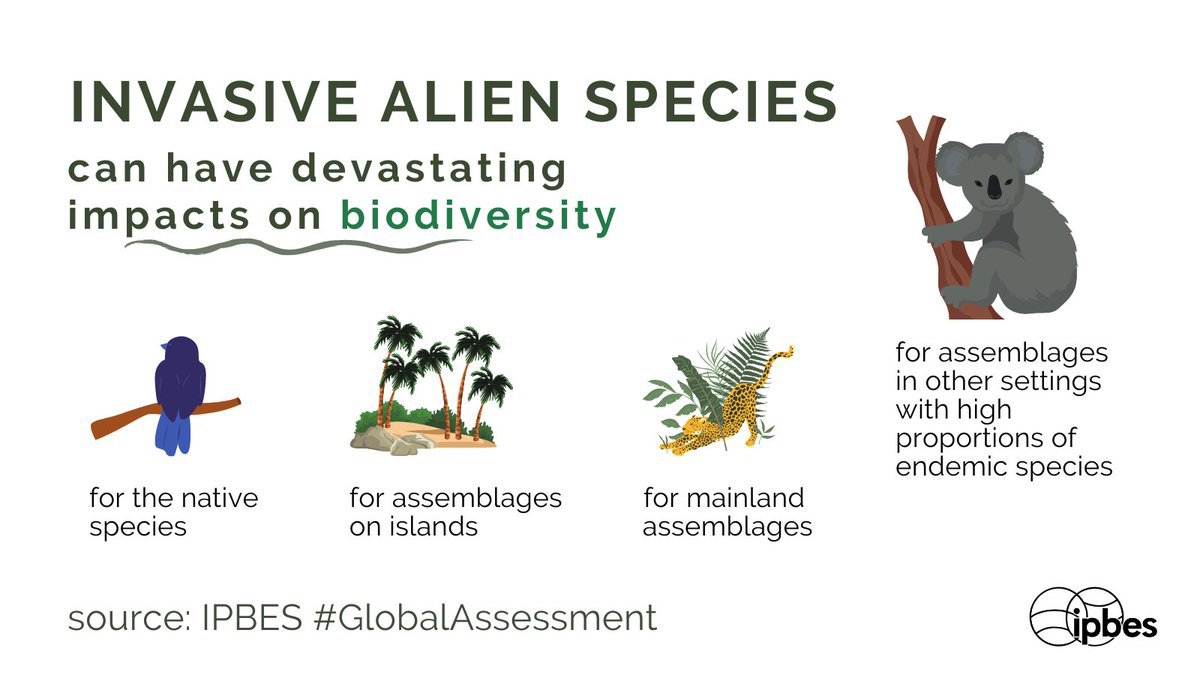February 28th to March 4th this year marks Invasive Species Awareness Week, a moment to raise awareness of the impact of invasive alien species on biodiversity and the importance of addressing this issue. According to the Convention on Biological Diversity, invasive alien species (IAS) are species whose introduction and/or spread outside their natural past or present distribution threatens biological diversity. Different organisms can be classified as IAS such as plants, animals, and microorganisms. IAS are species that can be introduced, either accidentally or intentionally, by human activities such as trade or transportation. Their introduction can have dramatic effects on ecosystems and lead to the extinction of native species.

Islands are especially vulnerable to IAS because they are naturally isolated, and they often lack strong competitors or predators that control populations in their native ecosystems. Although islands make up only 5% of the earth’s land mass, they are home to over 40% of all endangered species worldwide. In the Hawaiian Islands for instance, nearly 70% of all endemic birds are now extinct due to habitat loss, invasive alien species and diseases carried by IAS.
Invasive alien species also pose a threat to biodiversity in other parts of the world. Sub-Saharan Africa for example, has experienced an inflow of IAS in recent times according to the IPBES Global Assessment Report on Biodiversity and Ecosystem Services. A study carried out in Ghana by the Centre for Agriculture and Bioscience International (CABI) on 174 potential invasive alien species revealed that 62 pathogenic organisms and 96 arthropods were already present in Africa at the time of the assessment. The species recorded in Africa included 19 arthropod and 46 pathogenic species which were already recorded in the neighboring countries of Burkina Faso, Côte d’Ivoire, and Togo. According to researchers, these species could impair the agriculture, forestry and biodiversity of Ghana if introduced into the country.
Although existing tools can help manage the issue of invasive alien species they are not able to deliver the affordability, speed and scale required to reverse or stop the current rate of biodiversity loss. Research and innovation are needed if we are to enhance conservation efforts and protect threatened ecosystems against this threat. New tools such as gene drive applications, if proven safe and effective, have the potential to help control the populations of invasive alien species alongside current tools.
To celebrate Invasive Species Awareness Week let us speak up for nature and explore all possible solutions available as we fight together to restore our earth.
